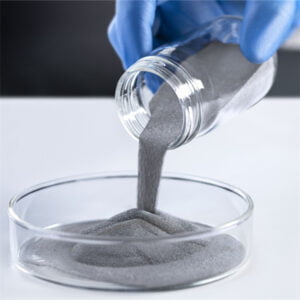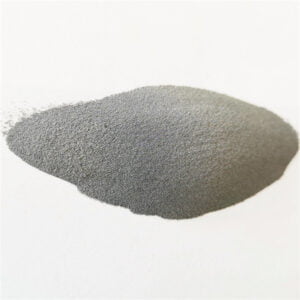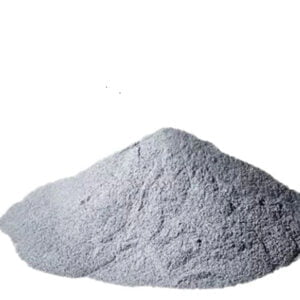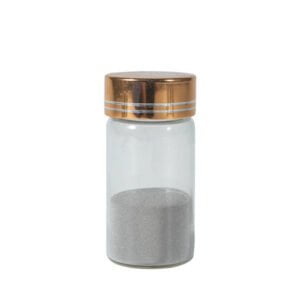Pure nickel powder is a highly versatile metallic powder with unique properties that make it suitable for various advanced applications across industries. This article provides an in-depth look at pure nickel powder.
Overview of Pure Nickel Powder
Pure nickel powder, as the name suggests, is a powder form of nickel with 99% or higher purity. It has properties different from nickel alloys due to absence of alloying elements.
Some key traits of pure nickel powder:
- Fine particle size allows easier compacting and sintering
- High purity provides consistency in metallurgical properties
- Spherical morphology gives good flowability
- Available in grades like carbonyl, electrolytic, carbonyl iron-freed
- Costs lower than many nickel alloys
With characteristics like high strength, ductility, corrosion resistance, and magnetism, pure nickel powders cater to niche applications unattainable with substitutions.
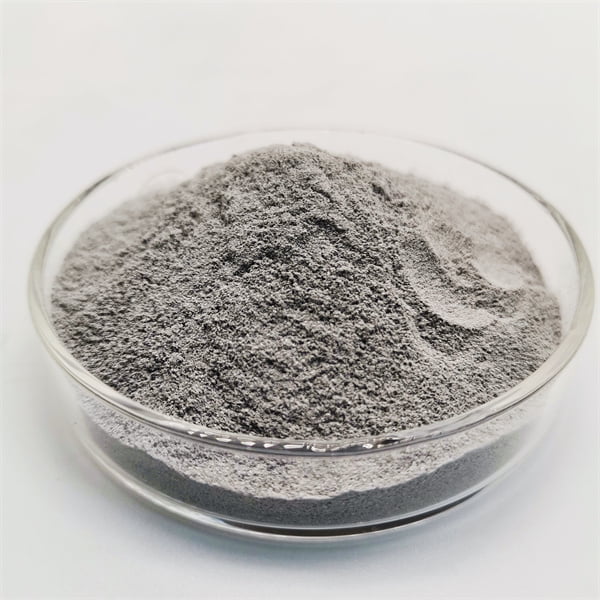
Typical Composition of Pure Nickel Powder
| Element | Weight % |
|---|---|
| Nickel (Ni) | 99.0 min |
| Carbon (C) | 0.1 max |
| Oxygen (O) | 0.4 max |
| Sulfur (S) | 0.01 max |
| Iron (Fe) | 0.5 max |
| Copper (Cu) | 0.2 max |
Key Properties of Pure Nickel Powder
| Property | Details |
|---|---|
| Particle shape | Spherical,Chain-like |
| Tap density | Up to 4.2 g/cc |
| Apparent density | Up to 2.5 g/cc |
| Specific surface area | 0.1 – 10 m2/g |
| Particle size | 0.5microns – 75 microns |
| Purity | Up to 99.8% |
| Melting point | 1453°C |
Applications and Uses of Pure Nickel Powder
The versatility of pure nickel powder makes it suitable for niche applications in areas like:
Multilayer ceramic capacitors (MLCC)
Due to properties like temperature stability, high conductivity, and oxidation resistance, pure nickel powder is ideal for internal electrodes in MLCCs in electronics and automotive industry.
Soft magnetic applications
Good magnetic permeability and low coercivity allow pure nickel powder usage in magnetic cores, choke coils, filters, and more.
Manufacturing
The compressibility and sinterability help economical manufacturing of pure nickel parts via powder metallurgy technique.
Catalysts
Large surface area provides high catalytic activity utilizes in chemical, pharmaceutical and petrochemical industries.
Batteries
Purity and electrochemical properties are useful for anode materials in nickel-based batteries.
Other applications
Specialized uses in conductive coatings and films, welding products, diamond tools, conductive adhesives/ink, brazing alloys.
Pure Nickel Powder Types and Specifications
Pure nickel powder is commercially available in various types, sizes, morphologies and grades suitable for different applications:
Types of Pure Nickel Powder and Typical Specifications
| Type | Particle Size | Apparent Density | Tap Density | Specific Surface Area | Purity |
|---|---|---|---|---|---|
| Carbonyl nickel | 2 to 12 μm | 1.5 to 2.2 g/cc | Up to 4 g/cc | 0.15 to 0.6 m2/g | Up to 99.8% |
| Electrolytic nickel | 15 to 75 μm | 2 to 3 g/cc | Up to 4.2 g/cc | 0.08 to 1.2 m2/g | Up to 99.9% |
| Carbonyl iron-freed | 2 to 5 μm | 1.8 to 2.5 g/cc | 3.2 to 4 g/cc | 0.4 to 1 m2/g | Up to 99.9% |
Particle Shapes Available
- Spherical
- Chain-like
- Dendritic
Sizes Available
- Submicron (less than 1 micron)
- 1-5 microns
- 10-15 microns
- 20-75 microns
Grades Available
- Standard purity (99% min)
- High purity (99.8% min)
- Ultra high purity (99.9% min)
Major Suppliers and Pricing
Being a specialty powder for advanced applications, pure nickel powder has limited suppliers globally. Prices depend on quantity and grade.
Leading Suppliers of Pure Nickel Powder
| Supplier | Location | Production Capacity |
|---|---|---|
| Vale | Canada | 50,000 metric tons per year |
| Jien Nickel | China | 20,000 metric tons per year |
| MIC Group | South Korea | 10,000 metric tons per year |
Pricing Estimate
| Type | Purity | Price Range* |
|---|---|---|
| Carbonyl nickel | 99.8% | $15 – $30 per Kg |
| Electrolytic nickel | 99.5% | $10 – $25 per Kg |
*Indicative price range. Contact supplier for exact quote based on grade, quantity and application.
Comparative Analysis
Advantages of Pure Nickel Powder
- Consistent properties from high purity
- Good corrosion resistance
- Economical compared to nickel alloys
- Specialized applications utilizing characteristics
Limitations of Pure Nickel Powder
- Limited global production capacity -SEG higher pricing than base metals
- Oxidation susceptibility at high temperatures
- Lower strength than many alloys
| Parameter | Pure Nickel | Nickel Alloys |
|---|---|---|
| Cost | Lower | Higher |
| Availability | Moderate | High |
| Electrical conductivity | High | Varies |
| Magnetic permeability | High | Varies |
| Corrosion resistance | Good | Very good |
| Oxidation resistance | Moderate | Good |
| Mechanical strength | Moderate | High |
As seen above, while nickel alloys exceed in areas like strength and oxidation resistance, pure nickel powders offer affordable solutions for electrical, magnetic and other niche applications while maintaining good corrosion properties expected from nickel.

FAQ
What are the most common applications of pure nickel powder?
The most common applications are in manufacture of multilayer ceramic capacitors (MLCC), soft magnetic components, diamond tools, welding products, batteries, and catalytic converters. The combination of properties like temperature stability, magnetism, corrosion resistance, compressibility, and cost make pure nickel suitable for these uses.
Why choose pure nickel powder over a nickel alloy?
Pure nickel powder provides high electrical and thermal conductivity, magnetism, compressibility, and reasonable corrosion properties at much lower cost compared to nickel alloys with fewer or no alloying elements. This allows niche applications where these characteristics are necessary but cost is a constraint. However, nickel alloys have superior strength at high temperatures which may necessitate use in certain structural applications instead.
What is carbonyl nickel powder?
Carbonyl nickel powder is produced via chemical vapor deposition by decomposing nickel carbonyl gas, giving uniform spherical particles with moderate surface area, making them suitable for sintering into components via powder metallurgy. High purity and low impurities also allow niche uses as catalysts and battery materials.
How does the price of pure nickel powder compare with nickel metal pricing?
Pure nickel powder costs between 1.5 to 4 times the LME nickel price per metric ton depending on grade and quantity. So when nickel trades at $20,000 per ton, the powder would approximately cost $30,000 to $80,000 per ton. The specialized production process for metallic powders accounts for this price premium over metal.
Conclusion
With its affordability combined with desirable thermal, electrical, magnetic and corrosion properties unattainable with substitutions, commercially available high purity nickel powder empowers development of advanced engineered products across industries to meet application challenges.




